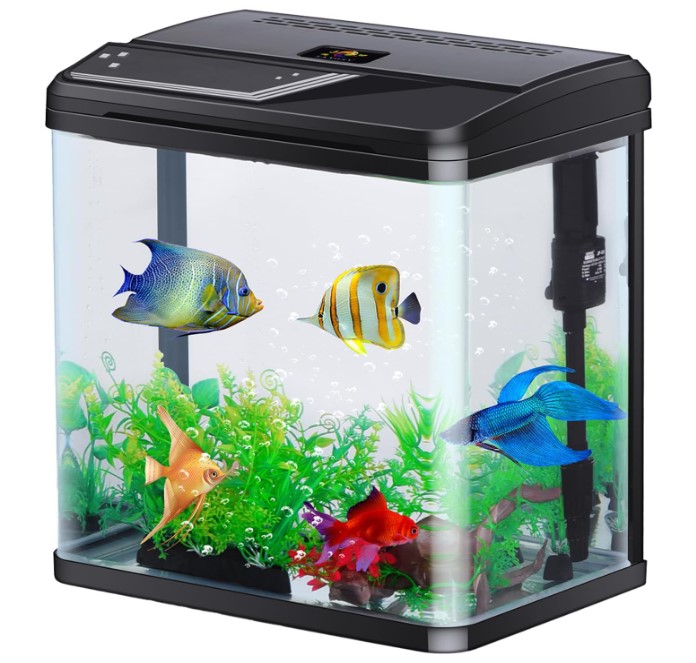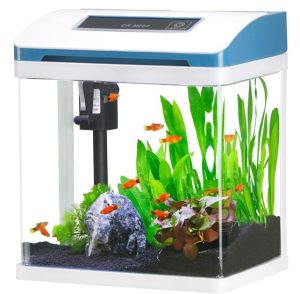Betta Fish Care
A Guide to Caring for Betta Fish.
First, a personal note from Ted;
 Why did I build bettafishcare.org? Ever since I was a kid there was always pets in my house. Dogs, cats, goldfish, rabbits -you name it, we had it. Fast forward to now. I am older with my own house. With my children, we’ve had cats, dogs, rabbits, chickens, goats, turtles and fish. Betta fish to be exact.
Why did I build bettafishcare.org? Ever since I was a kid there was always pets in my house. Dogs, cats, goldfish, rabbits -you name it, we had it. Fast forward to now. I am older with my own house. With my children, we’ve had cats, dogs, rabbits, chickens, goats, turtles and fish. Betta fish to be exact.
As my kids grew up, the pets went with them, except for the bettas.
I had quite a long learning curve with betta fish. Many times, I had questions about when one had an illness or how to set up an aquarium.
So, I organized bettafishcare.org to help you be the most successful betta fish owner possible.
Betta fish are often considered to be among the heartiest freshwater pets you can have, but great betta fish care is essential to a long and happy life.
Betta Fish Make Great Pets
Indeed, Betta fish are somewhat resilient in certain aspects, but it is a sort of misguided rumor. This species has that reputation due to the fact it can live in very cloudy, dirty water, since they are capable of getting oxygen directly through the air, due to the presence of an organ most other fish don’t have.
In fact, betta fish are similar to most other types of exotic fish in that you will need to take good care of them if you expect your betta fish to live a long life.
For this reason, I wrote and published a short guide that will help a dedicated Betta fish owner take care of their Bettas. If you follow this advice, you’re likely to have a healthy and happy Betta fish in your home.
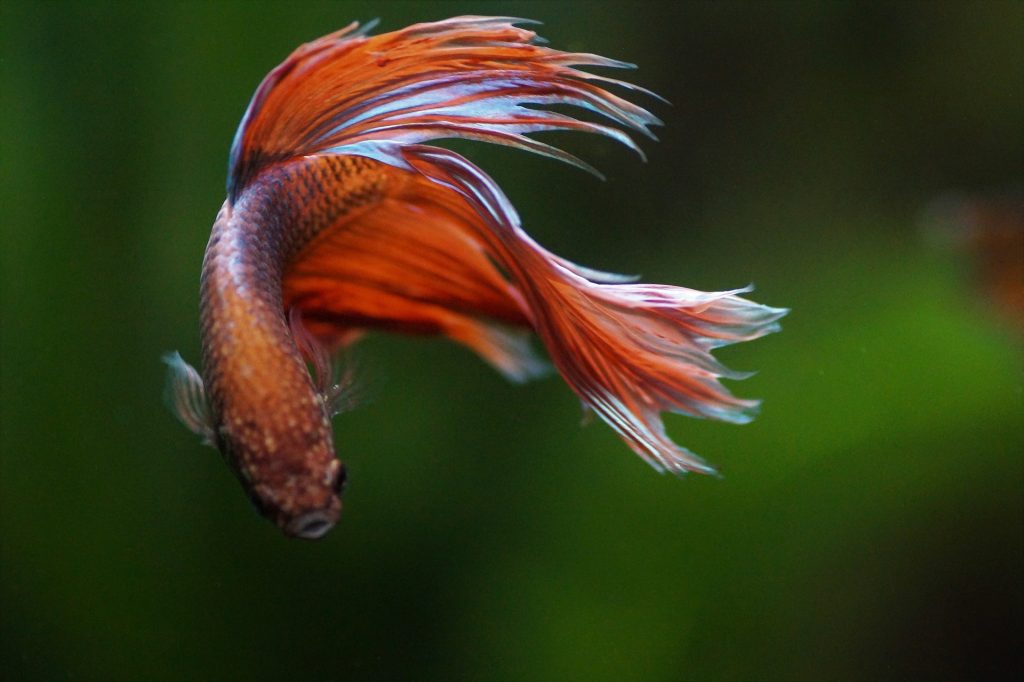
How To Choose A Betta Fish
Choosing a betta isn’t hard (click HERE to read the full article) but you do need to follow some basic rules.
- Find a clean reputable pet shop
- Carefully examine each fish for disease and other issues (and a few other things)
- Take your betta home!
Betta Fish Tank
The first thing you should consider after selecting your fish is what their home is going to be like. Make sure you ditch that jar from the store — it is way too small for a fish to live comfortably. Look for a betta fish tank that is at least in the 1-gallon range, so your Betta is going to have a decent amount of swimming room. It doesn’t have to be a purpose-built aquarium — some people like to get creative and use large vases, for instance. Search the internet for Betta fish tanks and you’ll be able to get more ideas, often which pictures are available.
4 Gallon Aquarium Starter Kit Small Glass For Betta Fish. You can see this at a great price on Amazon right now - click HERE!
Small Fish Tank 2 Gallon Glass Aquarium Starter Kits Self Cleaning w/Colorful LED Light for Betta Fish! Click HERE to see on Amazon!
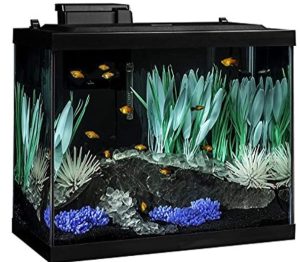 A great deal on Amazon Right Now - Tetra Colorfusion Aquarium!
A great deal on Amazon Right Now - Tetra Colorfusion Aquarium!
Another thing about Betta tank management — make sure to consider placement. It’s a great idea to place your bowl or tank in a location which allows for frequent viewing by yourself along with your family and possible quests, since this type of fish often puts on a show from time to time when there are people near the tank. It may decide to swim and jump around quickly, or perhaps just stare back at you, which can be fun as well. They may even follow you around in their tank.
Remember to cover your tank, as well, since Betta fish often jump out of it. You can prevent that from happening by covering it up, or simply by not filling your bowl or tank all the way up to the top.
Keep Your Betta Fish Tank Clean
Make sure your tank is clean — cleanliness is highly important for a Betta fish, so if you notice leftover food a few minutes after feeding ( about 30-45 minutes), pull it out with your net in order to prevent fungal or bacteria growth.
Accessories For Betta Fish
If you can, you may want to stock your tank with items which will make life better for your Betta, making it feel at home. Make sure your accessories are fin friendly — since Bettas often have long, beautiful fins which may get caught or tear. For instance, you may want to add smooth pebbles are crock in its bottle, or a few soft plants. Perhaps you can add a small item which sits on the tank’s floor, as long as it can’t catch the fish’s fins. You might even color coordinate the tank and accessories with the room where your Betta is going to be.
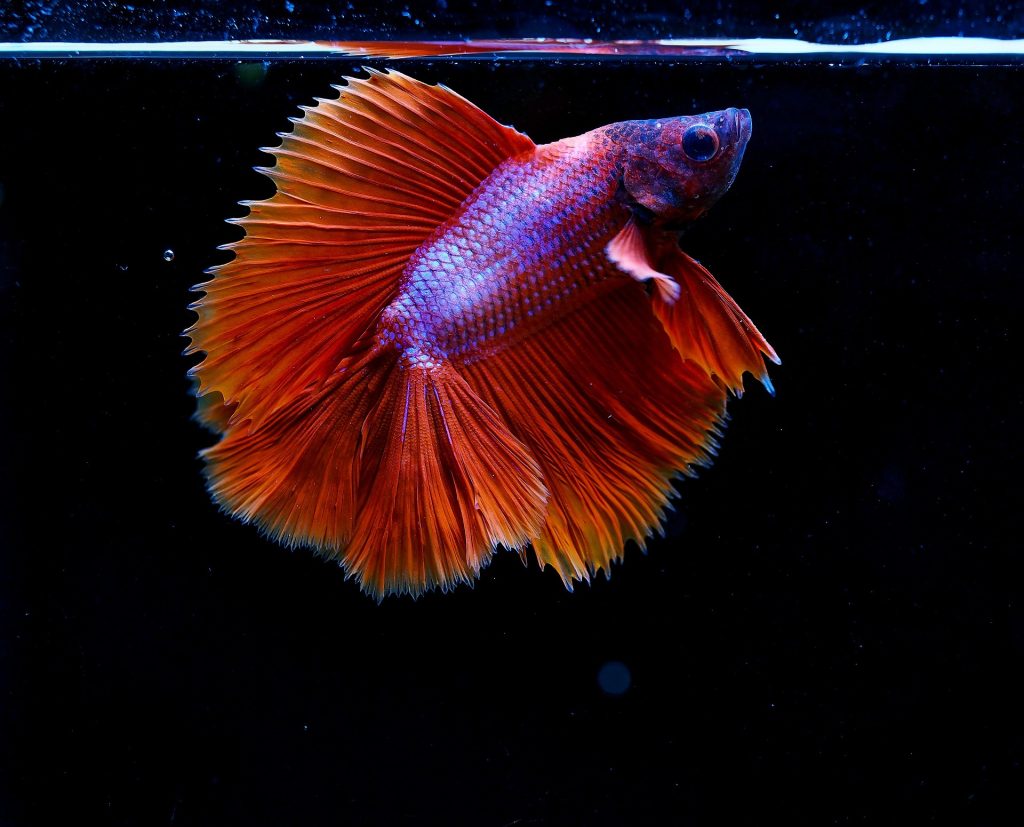
Quality Water
It’s essential that you take proper care of the water if you want your Betta Fish to thrive. Fill it and replace it often — if you’re using the size of 1 gal, replace from a third to a half of the water every week. Once a month, clean out the tank completely in order to be able to remove the fecal matter on the bottom of your fish’s tanks. Removing fecal matter is very important for proper betta health care.
Remember these recommendations are for a 1 gallon tank – if you’ll be using a smaller one, you’ll need to clean it more often.
Feeding Your Fighting Fish
Proper feeding is another important step for great betta fish care. There are two different schools of thought in this aspect, so decide which one seems best for you:
Live Betta Food Is Best
You may feed it regular fish food, which comes from a container. Or give give your betta live food such as bloodworms and brine shrimps. These can all be picked up at a local pet store.
While the second option is a somewhat more realistic way to feed your Betta, either works. And you can even mix up both methods, keeping more variety in your fish’s life. In the end, it comes down to your particular preference and budget.
Betta Fish Don’t Share A Tank
Very Important: Don’t ever purchase more than one Betta and have them share a tank, even if for a short period of time. They are sure to end up fighting, and it will be unpleasant. You only have two Bettas together if you want them to mate, and even then, you do so for a very short period in a highly controlled environment. If you’re interested in purchasing multiple betas, make sure you keep in mind.
Bettas Are Highly Territorial
The thing is, Bettas are highly territorial. When they’re in the ocean, a Betta which accidentally enters another’s territory may simply swim away. This is not possible in a tank, so it basically becomes an arena for multiple fish.
When feeding your Betta, aim to divide the daily amount in small parts, and place it on the tank throughout the day. It’s best not to give it all to them at once.
Live Betta Food Is Best
If you aren’t sure what to feed a Betta, you may want to go for live food such as live worms and mosquito larvae, or perhaps freeze dried food or flake food. Plankton, glass worms, tubifex, daphnia, and brine shrimp may be given as well, and they’re available freeze dried. Generally, a Betta will continue to eat live food even after they’re full. This is typically not the case with dried food. You may want to skip feeding them once a week, in order to give their digestive tract some time so that they can recover. Be very careful when feeding your Betta, since both contaminated food and overfeeding can be fatal to them.
Feed Your Betta Small Amounts
It’s best to feed a Betta a few times a day in small amounts than giving them one meal a day. Pay attention to your Betta, and watch out if it appears to be sluggish. This could mean it may have a Betta fish disease.
Change The Water Often
Remember to change the water often, and don’t forget to remove debris and excess food from its tank. Are you aware of all the symptoms associated with a sick Betta fish? If it appears to have trouble swimming, seems underweight or bloated, or appear distracted, it has probably contracted an illness. You’ll need to be very caring of them if that’s the case. Since Betta fish need a lot of care when they’re sick, it’s best to focus your energy on preventing diseases, than trying to remedy them afterwards.
Preventing Betta Fish Diseases
Often, a disease in a Betta fish will be a direct result of improper care or neglect on the owner’s part. Dirty water, or water at an improper temperature, could be hospitable for parasites which can feed on your betta. A variety of medicines can be useful for certain Betta diseases. But the chemicals can have significant negative side effects on the fish. This is true even if you don’t notice any problems right away. Rather, they may appear over some time.
Keep Your Betta Free of Parasites
It’s best to make sure your Betta is free of parasites and healthy at all times. You can worry about what’s the right medication for it later on. Remember that parasites can be very contagious, so you may have an epidemic in a community tank. An epidemic could possibly kill all your fish. If you have the time, it’s recommended that you thoroughly monitor the water quality in the tanks. Make sure they aren’t too cold, so that your fish can live free of stress and remain healthy.
A Healthy Betta Can Fight Disease
If your Betta is healthy, it’ll be able to fight most diseases. Do your best to keep them in a stress-free environment for your betta fish. Make sure you have the right set up with adequate size, and maintain proper care and a proper diet. Your betta won’t be stressed out, and, thus, live a much healthier life, free of parasites or diseases.

